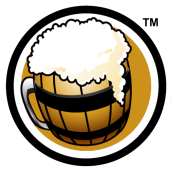Hops
|
Amount
|
Variety
|
Cost
|
Type
|
AA
|
Use
|
Time
|
IBU
|
Bill %
|
|
5 g |
Magnum5 g Magnum Hops |
|
Pellet |
15 |
Boil
|
15 min |
4.08 |
20% |
|
10 g |
Mandarina Bavaria10 g Mandarina Bavaria Hops |
|
Pellet |
8.5 |
Dry Hop
|
5 days |
|
40% |
|
10 g |
Crystal10 g Crystal Hops |
|
Pellet |
4.3 |
Dry Hop
|
5 days |
|
40% |
|
25 g
/ $ 0.00
|
Mash Guidelines
|
Amount
|
Description
|
Type
|
Start Temp
|
Target Temp
|
Time
|
|
25 L |
|
Infusion |
65 °C |
63 °C |
60 min |
|
15 L |
|
Fly Sparge |
75 °C |
75 °C |
10 min |
Other Ingredients
|
Amount
|
Name
|
Cost
|
Type
|
Use
|
Time
|
|
20 g |
Wooden Chips
|
|
Other |
Secondary |
5 days |
|
40 g |
Orange Zest
|
|
Spice |
Secondary |
5 days |
Priming
|
Method: Honey
Amount: 230.5 g
Temp: 20 °C
CO2 Level: 2.8 Volumes |
Target Water Profile
Balanced Profile
Notes
Guide:
-Mashing temperatures target at low in order to have a high fermentable wort.
-After finishing wort boil, bring down the temperature to 43°C, transfer to the fermentor and pitch the Lacto culture. Let it work for 24 hours if you have a heat pad or 36h without it.
-Pitch the yeast and ferment the first days cool and then rise temperature towards the end.
-After first fermentation complete, toss 1kg of pasteurized Honey and let it ferment for at least 5 days at cool temperature (16°C).
-After second fermentation complete, add the orange zest, hops and previously spirit soaked wooden chips.
-Let it sit for at least 5 days and then bottle it with honey as the priming sugar.
Tips:
-As the wort will be acidified by the Lacto, make sure you have a healthy yeast with enough cells, otherwise it will struggle and may drops some unwanted off-flavors
-The wooden chips vary greatly on strenght depending on the type and charring level, thus the quantity added should also vary. Wood character should never be the star on this brew.
-Do not add any more hops in the boil, otherwise Lacto will not work.
-When adding the zests and chips, use a bag with sanitized glass marbles inside to prevent clogging when bottling.
What should you expect:
-High ABV and low pH will help your beer to endure possible contaminations and will improve aging in the bottle.
-Sweetness from the malt and honey will be balanced by the sourness brought from the Lacto and bitterness by dry hopping.
-Orange and floral notes will marry the remaining sweetness and wood will set a nice background and aftertaste.
-Dry hopping will improve foam stability that Lacto would have imparted.
-Although a high ABV beer, it's a surprisingly refreshing brew.
Please leave a message with the feedback and feel free to contact. Cheers!

Last Updated and Sharing

- Public: Yup, Shared
- Last Updated: 2020-08-13 13:26 UTC
For quick copying and pasting to a text based forum or email.
Click the Download as HTML file button below.
Recipe costs can be adjusted by changing the batch size. They won't be saved but will give you an idea of costs if your final yield was different.
|
Cost $ |
Cost % |
| Fermentables |
$ |
|
Steeping Grains
(Extract Only) |
$ |
|
| Hops |
$ |
|
| Yeast |
$ |
|
| Other |
$ |
|
| Cost Per Barrel |
$ 0.00 |
|
| Cost Per Pint |
$ 0.00 |
|
| Total Cost |
$ 0.00 |
|
Discussion about this recipe:
